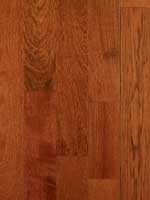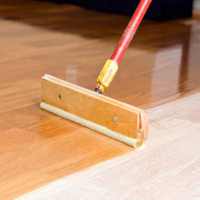Considerations That Influence Exotic Hardwood Decisions
Exotic hardwood evokes gorgeous mental images of indigenous wood species: Brazilian Cherry (Jatoba), Brazilian Teak (Cumaru), Tigerwood and Santos Mahogany.
The range of exotic hardwoods available does present a dazzling array of choice. However, builders and consumers must deeply invest in the knowledge needed to safely protect any investment in exotic hardwood flooring installation. In order to choose wisely, you must consider two wood fundamentals: woods specific gravity (SG) and moisture content (MC).
Wood Density
SG is a physical property of wood that is an index of weight. The SG of wood is usually based on the volume of wood at some specified MC and its weight when oven-dried. Many factors influence the woods SG. For exotic hardwoods, it includes the tree’s genetic factors, where the wood was located within the tree itself and conditions at the tree’s on-site location.
Magnify all of the above by global environmental diversity, and you begin to sense the need to thoroughly research prospective exotic hardwoods.
Wood species contain their own properties and characteristics. Softwoods have SG’s which can vary significantly from hardwoods. However, density varies enough within the hardwood species to caution us on this issue. Black Walnut’s SG varies by 9 percent from that of White Ash, for example.
While this makes for delightful hardwood diversity, builders and consumers just need to be aware that such differences also occur in exotic hardwood species.
The Exotic Challenge

Brazilian Teak, also known as Cumaru, is an excellent example of exotic hardwood flooring challenges. Its popularity comes from its extreme hardness and durability characteristics so it can be used in both commercial and residential flooring applications.
However, it may resist oil finishes and not dry properly. Builders would be exotically challenged to determine what the stable, dependable MC measurements for the flooring material should be previous to installing the finish and after the finishing operation.
Pre-finished wood flooring should be purchased by the builder, consumer or the installer in this application unless they are well trained in finishing these type of exotic wood pieces. This woods susceptibility to moisture could have a huge impact on the installer’s schedule, the finishes he uses and the long-term viability of the floor itself.
Moisture Content Diversity

Wood’s MC also exerts a powerful influence over the success of exotic hardwood flooring installations. As of early 2012, the industry has not developed universal grading standards for exotic hardwoods. That means consumers must rely on quality manufacturing by the manufacturer of the flooring.
Also, manufacturers who produce mixed-and-matched exotic engineered hardwood floor products face the difficult task of managing varying MC characteristics for each species in the mix. Put simply, mixed-and-matched wood flooring requires much greater investment in measuring the equilibrium moisture content (EMC) – wood’s stable moisture status – than single-species flooring.
That said, installers are able to purchase accurate wood moisture meters which have different wood SG settings and corrections tables for exotic hardwood applications. The Orion® line of moisture meters have SG species settings available which enable flooring professionals to customize assessments for the correct MC in tropical wood species.
Exotic hardwoods, by definition, are as distinct and diverse as our motives for choosing them. Different species contain different wood SG traits. Even organic and inorganic wood extracts have different densities in the tree’s heartwood (its internal core) and the sapwood (its outer layer beneath the bark).
Proceed, but enhance your grand vision with fundamental knowledge before pulling the trigger on your exotic hardwood decision.

Free Download – Wood Flooring Installation: What To Expect
As Sales Manager for Wagner Meters, Ron has more than 35 years of experience with instrumentation and measurement systems in different industries. In previous positions, he has served as Regional Sales Manager, Product and Projects Manager, and Sales Manager for manufacturers involved in measurement instrumentation.
Last updated on March 12th, 2024



